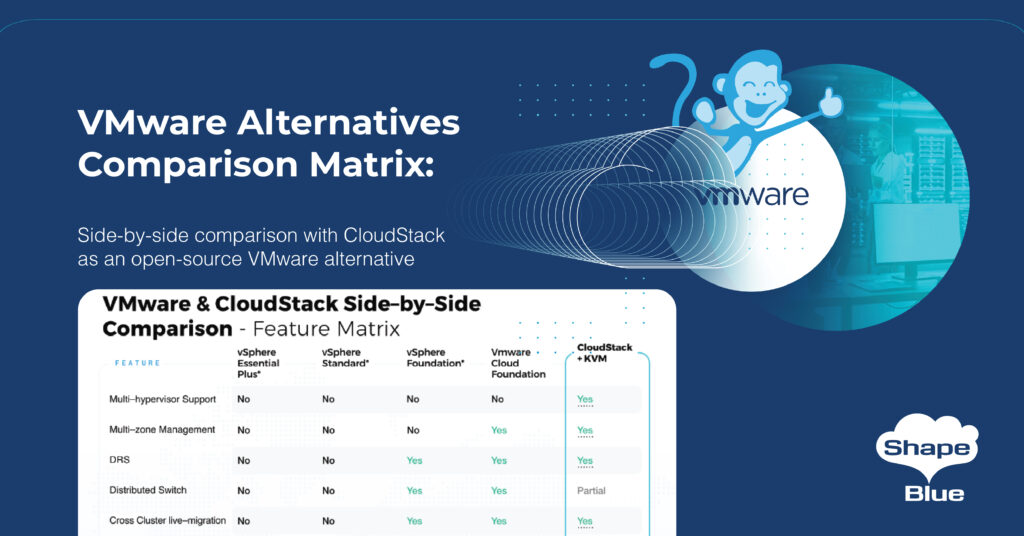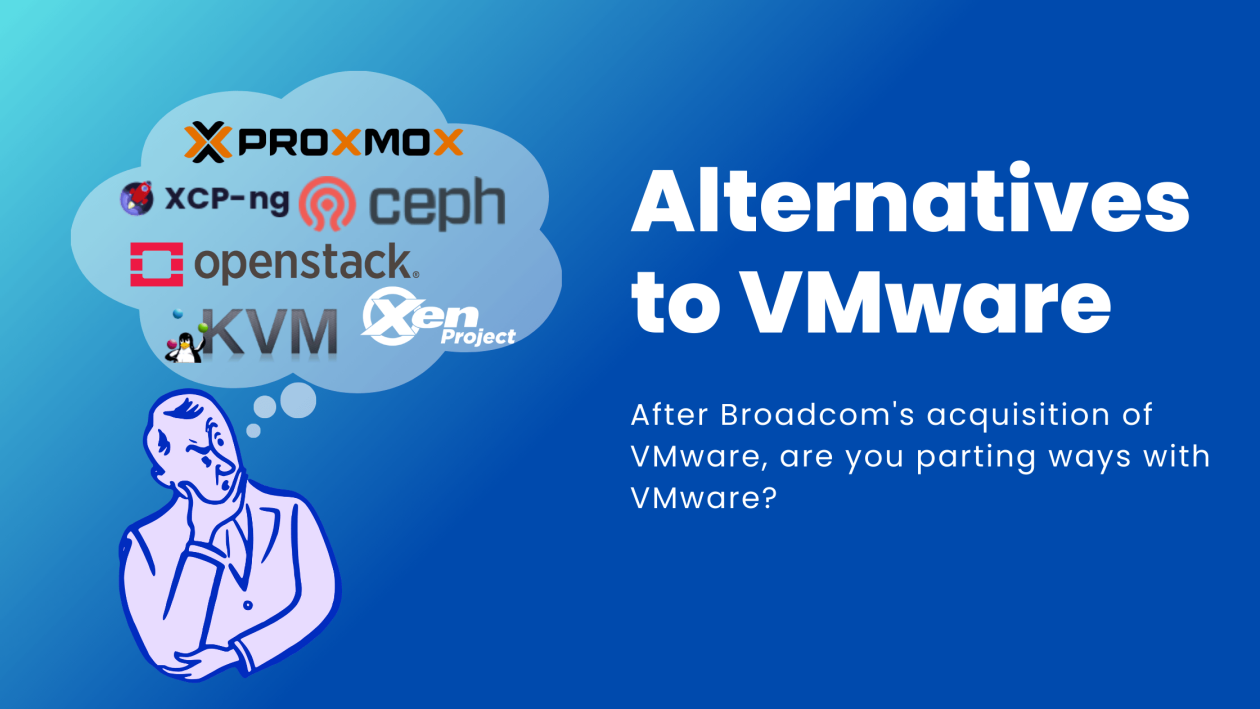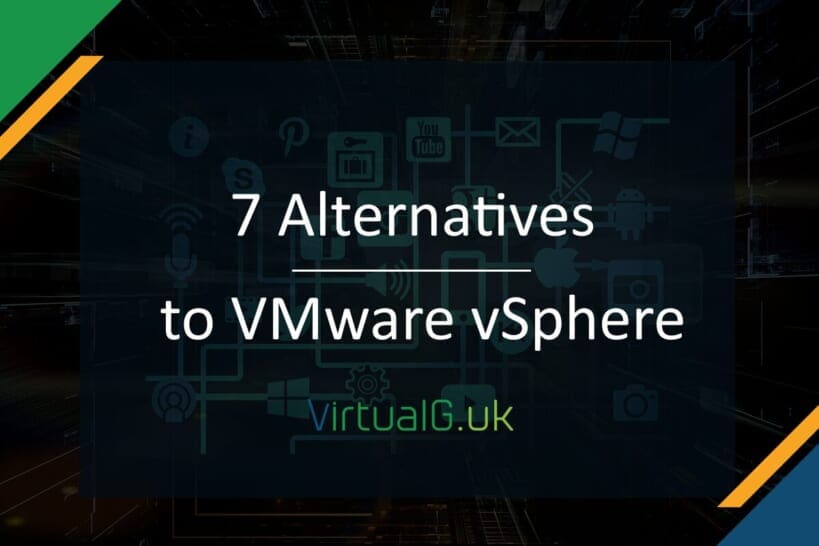Top VMware Alternatives In 2025: Find The Best Options
Are you contemplating a shift away from VMware, perhaps due to recent changes or a desire to explore new horizons? The landscape of virtualization is vast, and understanding the top alternatives is crucial for making informed decisions that align with your specific needs and future goals.
The virtualization arena is in constant flux, with new players emerging and established ones evolving. The recent acquisition of VMware by Broadcom has undeniably shaken things up, prompting many organizations to re-evaluate their virtualization strategies. This, coupled with the ever-present drive for cost optimization and the desire for more tailored solutions, has fueled a surge of interest in VMware alternatives. The goal is simple: Find the best option for the best price. Its about finding the solution that fits your unique infrastructure, budget, and strategic direction. This article delves into the prominent contenders in the virtualization space, providing an in-depth analysis of their features, advantages, and potential drawbacks to equip you with the knowledge needed to navigate this dynamic landscape.
Before we dive into the specifics, let's address a key point: The virtualization landscape isn't one-size-fits-all. The ideal solution hinges on a variety of factors, including your organization's size, existing infrastructure, budget constraints, and the specific workloads you intend to virtualize. The choice between a desktop virtualization solution like VMware Workstation and an enterprise-grade alternative is significant, as they cater to different sets of requirements.
- Malia Obama Her Life Love Wedding The Latest Updates
- Explore Viral Indian Mms Videos Xxx Content 2024
Here's a breakdown of what we'll cover, ensuring you're well-prepared to make an informed decision:
- An overview of the key drivers behind the increasing interest in VMware alternatives.
- Detailed profiles of five leading virtualization platforms, including their strengths, weaknesses, and use cases.
- Considerations for selecting the best alternative for your unique situation.
- Insights into the types of virtualization solutions available.
The alternatives to VMware are numerous. Some of the best alternatives to consider in 2025, are discussed in detail below, offering insights into their distinct advantages and potential drawbacks. These platforms cater to a wide spectrum of business needs and virtualization strategies.
One point to be noted is that VMware products, such as Workspace ONE, which was a very successful product, is not on the list because it was sold off in 2023 and is now under the Omnissa brand.
- Movie Streaming Piracy Latest Updates Where To Watch
- Find Movies Streaming Download Options Free Movies Katmoviehd More
Let's delve into the contenders, exploring what makes each one a viable alternative in today's competitive market.
VirtualBox: This open-source marvel is often the first port of call for those seeking a free VMware Workstation alternative. Its widespread popularity stems from its ease of use, cross-platform compatibility (supporting Windows, macOS, Linux, and Solaris), and a generous feature set that includes snapshots, virtual networking, and support for a wide range of guest operating systems. While it might lack the sophisticated enterprise features of its paid counterparts, VirtualBox is an excellent choice for individual developers, students, and small businesses looking to experiment with virtualization or run multiple operating systems on a single machine.
QEMU (Quick EMUlator): QEMU stands out as a versatile, open-source hypervisor capable of emulating various hardware architectures. While not as user-friendly as VirtualBox out of the box, QEMU's power lies in its flexibility and performance. It can be used as a standalone emulator or as a backend for other virtualization solutions. Its ability to handle diverse workloads and its integration with other tools make it a strong contender, particularly for those with specialized needs or those seeking a high degree of customization. QEMU is not as easy to set up as VirtualBox, but it is open source and a potent virtualization tool.
VMware Workstation Pro: While we are discussing the alternatives, its important to acknowledge VMware Workstation Pro's presence. This product remains a strong option for desktop virtualization, offering advanced features like snapshots, cloning, and networking capabilities. However, given the recent Broadcom acquisition and the shift in VMware's focus, some users are understandably exploring other options.
The discussion of the best VMware alternatives should not be a shallow one, as it requires a careful evaluation of each platforms capabilities, pricing, and compatibility. To delve into more specific detail, we will provide you with a helpful table:
| Feature | VirtualBox | QEMU | VMware Workstation Pro |
|---|---|---|---|
| Type | Desktop Virtualization | Hypervisor/Emulator | Desktop Virtualization |
| Licensing | Open Source (GPLv2) | Open Source (GPL) | Commercial |
| Ease of Use | Very User-Friendly | Moderate | User-Friendly |
| Platform Support | Windows, macOS, Linux, Solaris | Windows, macOS, Linux, BSD, etc. | Windows, Linux |
| Key Features | Snapshots, Networking, Guest OS Support | Emulation, KVM Integration, Versatility | Snapshots, Cloning, Advanced Networking |
| Ideal For | Individuals, Students, Small Businesses | Developers, Specialized Workloads | Developers, IT Professionals |
With the rise of cloud computing, many organizations are looking at alternatives for private cloud solutions. When looking to replace VMware, the options are divided into four main categories.
Citrix Hypervisor: Citrix Hypervisor, formerly known as XenServer, emerges as a strong contender, especially for businesses prioritizing high availability and disaster recovery. Its robust feature set, including live migration, storage integration, and advanced security, makes it a compelling choice for enterprise-grade deployments. Citrixs hypervisor is known for its powerful performance and reliability.
Microsoft Hyper-V: If your infrastructure is heavily invested in the Microsoft ecosystem, Hyper-V, which comes bundled with Windows Server at no additional cost, might be the most appealing alternative. Its native integration with Windows workloads, Azure integration capabilities, and strong support for Windows-based applications offer a streamlined experience. Hyper-V simplifies management and administration, it is a great option for organizations that are already using Microsoft technologies.
Azure Local: For organizations that are looking for solutions with integrated services and management, Azure Local might be the best alternative. Azure Locals integration is a boon, with seamless transitions to the cloud when it is needed. The user gets a solution tailored to their needs.
As the industry evolves, the landscape of virtualization is constantly changing. The best alternative will ultimately depend on individual requirements.
It's essential to conduct thorough research and carefully assess each platform's capabilities, pricing, and compatibility with your existing infrastructure. The ultimate decision should be driven by your unique needs and strategic goals, ensuring that the chosen solution empowers your organization to achieve its objectives in the ever-evolving world of virtualization.
Considerations when Choosing a VMware Alternative:
- Pricing and Licensing:
VMware's pricing structure has traditionally been complex, with costs varying depending on the chosen products and specific client agreements. With Broadcom's acquisition, the potential for further price adjustments and changes to licensing models has led many users to re-evaluate their choices.
When evaluating alternatives, meticulously examine the pricing models, licensing terms, and overall cost of ownership. Consider the long-term implications of each platform's financial commitments and how they align with your budget.
- Features and Functionality:
Assess the feature set of each potential alternative against your current and future virtualization needs. Some of the most critical features include:
- Hypervisor Features: Consider the features of the hypervisor itself.
- Compatibility: Check compatibility with existing operating systems, applications, and hardware.
- Management Tools: Evaluate the quality and capabilities of management interfaces, automation tools, and monitoring solutions.
- Integration: Consider the platforms compatibility and integration with the rest of your infrastructure
- Scalability: Determine if the platform can grow with your needs.
- Performance: Benchmark the potential performance of each platform.
- Integration with Existing Infrastructure:
Integration is key when switching platforms, and VMware provides that. Some key questions need to be asked here:
- Does the alternative seamlessly integrate with your existing hardware, software, and cloud services?
- Does it support your current security protocols?
- Does the solution complement your current network setup?
- Ease of Use and Management:
The user-friendliness of the platform is a significant factor, especially for organizations with limited IT resources. Consider:
- Ease of installation, configuration, and ongoing management.
- Availability of comprehensive documentation, support resources, and community forums.
- The learning curve associated with each platform and the associated time and effort.
- Support and Community:
Robust support and a vibrant community are critical for long-term success. Consider:
- The level of support offered by the vendor, including response times, expertise, and available channels.
- The size and activity of the community, as well as their experience.
- The availability of third-party integrations, plugins, and complementary tools.
- Scalability and Future-Proofing:
Choose a platform that can grow with your organization's needs. Consider:
- The platform's ability to support increasing workloads.
- Its ability to scale to support a growing number of virtual machines and users.
- Its long-term roadmap.
In the ever-evolving field of virtualization, staying informed is key. Evaluate the specific needs of your organization, carefully consider the advantages and disadvantages of each option, and choose a solution that best aligns with your present and future goals.
It's important to remember that many organizations are currently looking into VMware alternatives for their private cloud solutions, but there are a myriad of other options.
The 4 Main Types of Alternatives:
Several main types of alternatives exist that could be your best bet. These are:
- Desktop Virtualization: These are desktop solutions.
- Enterprise Virtualization: Hypervisors and other software solutions suited for enterprise environments.
- Open Source: Virtualization solutions that are open source and available for free.
- Cloud-Based: These are cloud virtualization solutions.
Where to Find More Information:
For detailed information and updates on VMware alternatives and the broader virtualization landscape, consider exploring these reputable sources:
- TechTarget: Provides insightful articles and analysis on virtualization and cloud computing.
- ITPro Today: Offers news, reviews, and how-to guides on various IT technologies.
- VMblog: Presents a community-driven platform for virtualization professionals.
- Gartner and Forrester: Renowned IT research and advisory firms that offer in-depth reports on the virtualization market.
- Official vendor websites: Check the product pages of the vendors mentioned above for documentation, news, and updates.
Conclusion:
The decision of whether or not to change from VMware is a critical one. It is a dynamic landscape, filled with opportunities to transform IT infrastructures and reduce costs. As we move towards 2025, make sure you are well-equipped to make a strategic choice. With a thorough understanding of the key players, the ability to evaluate your specific needs, and a commitment to staying informed, you can confidently navigate the virtualization arena and find the optimal solution for your organization.

VMware Alternatives Comparison CloudStack open source VMware alternative

Alternatives to VMware Kubedo Cloud

7 Alternatives to VMware vSphere